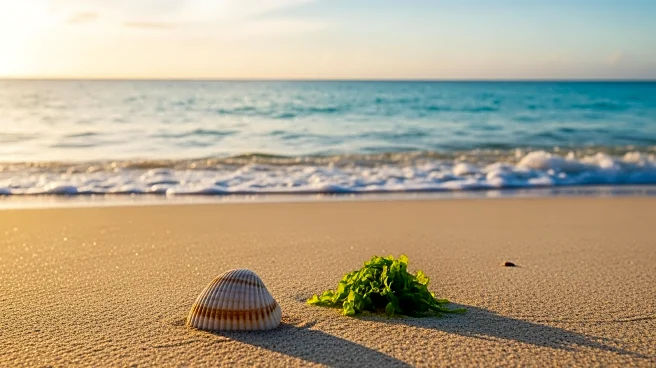What's Happening?
Sysco, the world's largest food distributor, is partnering with the New Jersey Department of Environmental Protection (DEP) to enhance the state's shell recycling program. The initiative involves collecting
discarded oyster and clam shells from restaurants across New Jersey to create and enhance oyster reefs along the coast. These reefs serve as vital habitats for marine life, improve water quality, and act as natural barriers against storm surges, reducing coastal erosion. The partnership aims to expand the program's reach, adding hundreds of restaurants to the existing network.
Why It's Important?
The expansion of the shell recycling program is crucial for strengthening New Jersey's coastlines against the impacts of climate change and sea level rise. By enhancing oyster reefs, the initiative supports marine biodiversity and provides a sustainable solution to coastal protection. The collaboration between Sysco and the DEP demonstrates a commitment to environmental stewardship and could serve as a model for similar programs in other regions. It also highlights the role of businesses in contributing to ecological resilience and sustainability.
What's Next?
The partnership is expected to broaden the reach of the shell recycling program, potentially involving more restaurants and increasing the volume of recycled shells. This could lead to further development of oyster reefs and greater protection for the Jersey Shore. However, ongoing disruptions due to the federal government shutdown may impact other environmental infrastructure projects, posing challenges to the program's progress. Stakeholders may need to advocate for continued support and funding to ensure the initiative's success.
Beyond the Headlines
The shell recycling program raises ethical considerations about waste management and resource utilization. By repurposing shells, the initiative reduces landfill waste and promotes circular economy practices. It also encourages community involvement and awareness of environmental issues, fostering a culture of sustainability. Long-term, the program could influence policy decisions related to coastal management and conservation efforts.








